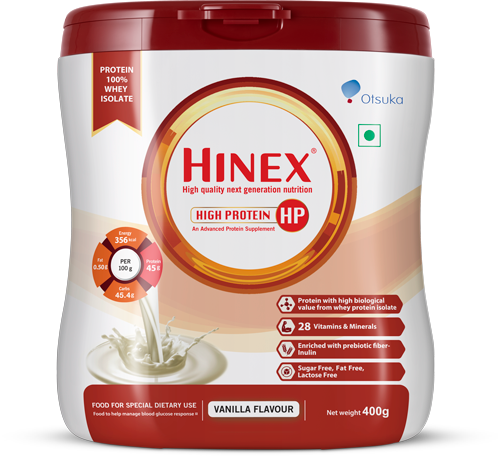Whey Protein Supplements for Diabetics: Benefits, Safety, and Usage Tips

Managing diabetes involves maintaining balanced blood sugar levels, which is essential for preventing complications. As people with diabetes look for ways to optimize their nutrition and fitness, whey protein supplements have gained attention for their potential benefits. Derived from milk, whey protein is rich in essential amino acids and can play a significant role in supporting muscle health, weight management, and overall wellness. But how safe is it for diabetics, and what benefits can it offer? In this blog, we’ll explore the advantages of whey protein supplements for diabetics, along with scientific insights and safety tips.
What is Whey Protein?
Whey protein is a high-quality protein sourced from milk during the cheese-making process. It contains all the essential amino acids, making it a complete protein. Whey protein is rapidly absorbed and is known for its role in building and repairing muscle tissues. In addition, it may help with weight management, a key concern for many diabetics.1
Benefits of Whey Protein for Diabetics
-
Regulating Blood Sugar Levels
Some studies suggest that whey protein may help regulate blood sugar levels by stimulating insulin secretion. It may also improve insulin sensitivity, which is crucial for managing type 2 diabetes. Whey protein helps to slow down the absorption of carbohydrates, preventing sudden spikes in blood glucose levels.2
-
Supporting Weight Loss and Lean Muscle
For individuals with diabetes, managing weight is essential for overall health. Whey protein has been shown to aid in weight loss by promoting satiety and boosting metabolism. Maintaining lean muscle mass is also important for regulating insulin sensitivity.3
-
Boosting Heart Health
People with diabetes are at an increased risk of cardiovascular diseases. Some research indicates that whey protein may help lower blood pressure and cholesterol levels, contributing to better heart health.4
-
Improving Muscle Health
Maintaining muscle mass can be challenging in people with diabetes. Whey protein helps preserve muscle tissue, particularly important in preventing sarcopenia (age related muscle mass loss) that can lead to decline in functional capacity.5
Safety Considerations for Diabetics Using Whey Protein
While whey protein can provide significant benefits, it’s important for diabetics to use it properly. Here are some key safety tips:
-
Monitor Blood Sugar Levels:
Since whey protein can influence blood sugar, it’s important to monitor your levels regularly to ensure they stay within the target range.
-
Consult a Healthcare Professional:
Before incorporating whey protein into your diet, consult with a doctor or nutritionist, especially if you’re on medication for diabetes or have other health conditions.
-
Avoid High-Carb or Added Sugar Whey Proteins:
Opt for whey protein isolates that are low in sugar and carbohydrates to avoid causing spikes in blood glucose levels.
-
Moderate Consumption:
While whey protein is safe for most diabetics in moderation, excessive consumption of protein can strain the kidneys, especially if there’s pre-existing kidney disease.6
How to Use Whey Protein for Diabetics
-
Post-Workout Recovery:
Consuming 20-30 grams of whey protein after exercise can help repair muscle tissue while maintaining stable blood glucose levels.
-
Meal Replacement or Snack:
Whey protein shakes or smoothies are an excellent choice for quick meals or snacks that help control appetite and provide a steady release of energy without spiking blood sugar.
-
Incorporate in Balanced Meals:
Combine whey protein with fiber-rich foods like vegetables, whole grains, and healthy fats to slow down the absorption of sugars and maintain stable blood glucose levels.7
Conclusion
Whey protein can be an effective supplement for managing blood sugar, supporting muscle health, and aiding weight management in people with diabetes. However, it’s important to choose the right type of whey protein, monitor your blood glucose levels, and consult with a healthcare provider before adding it to your routine.
At Hinex, we offer high-quality whey protein supplements designed to support your health and wellness journey. Whether you’re aiming to enhance fitness or manage diabetes, our products are here to help you succeed.
References
- What is Whey Protein – Cleveland Clinic. Available at: https://health.clevelandclinic.org/is-whey-protein-good-for-you, accessed on: March 19, 2025
- The Role of Whey Protein in Blood Sugar Regulation – Diabetes Care
- Whey Protein for Weight Management – PubMed. Available at: https://pubmed.ncbi.nlm.nih.gov/, accessed on: March 19, 2025
- Whey Protein and Cardiovascular Health – American Heart Association. Available at: https://www.heart.org/, accessed on: March 19, 2025
- Muscle Health and Diabetes – NIH. Available at: https://www.ncbi.nlm.nih.gov/, accessed on: March 19, 2025
- Diabetes and Protein Intake – Mayo Clinic. Available at: https://www.mayoclinic.org/, accessed on: March 19, 2025
- How to Use Whey Protein for Best Results – Healthline. Available at: https://www.healthline.com/nutrition/whey-protein-101, accessed on: March 19, 2025

 Buy Now
Buy Now Buy Now
Buy Now



